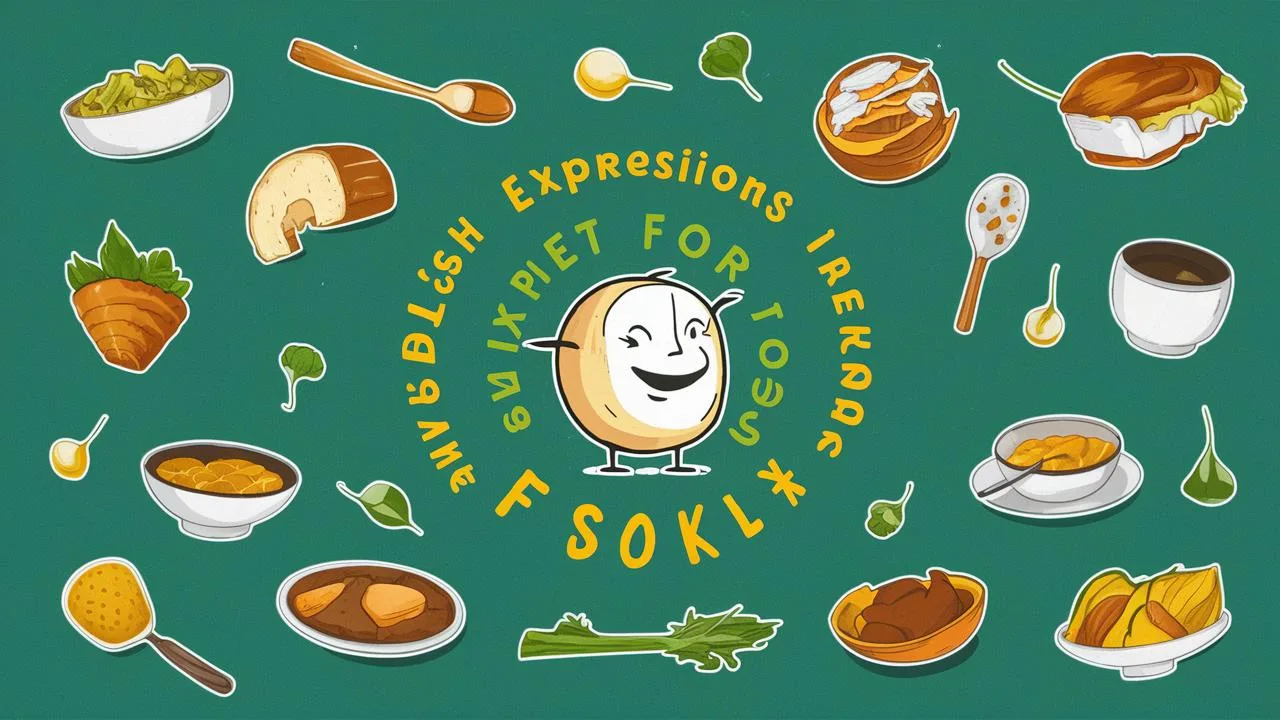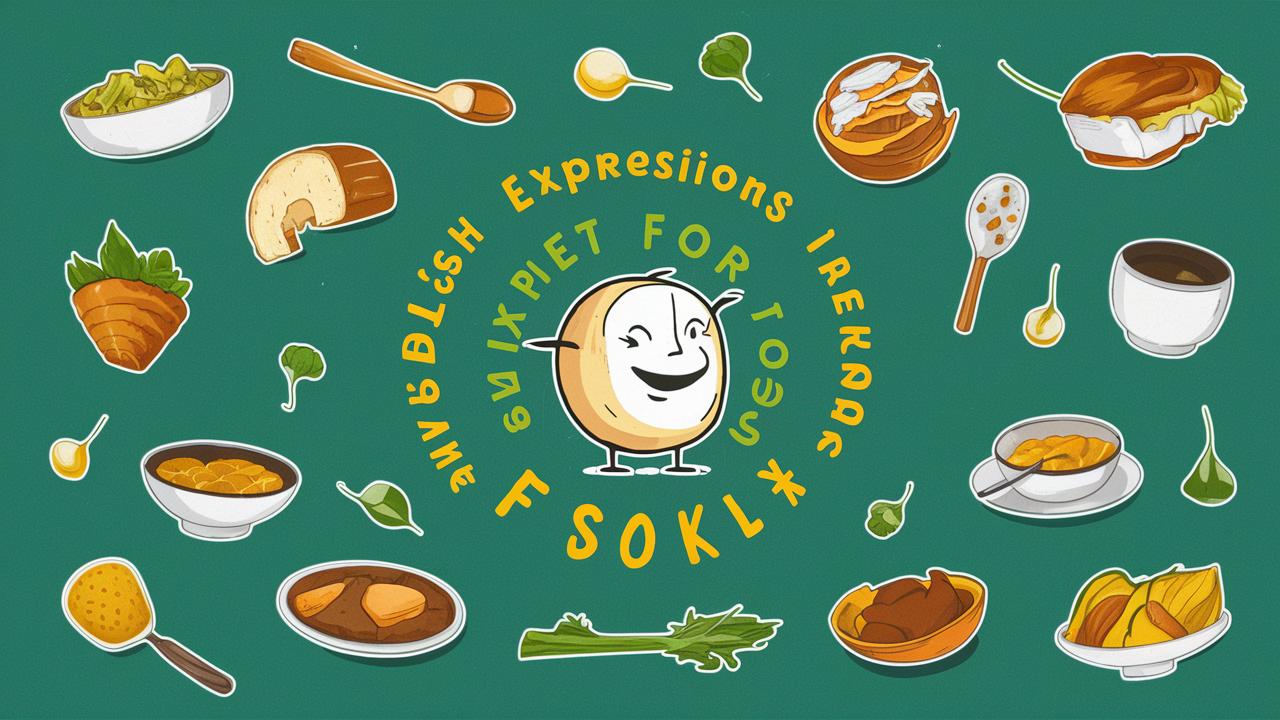What are some common Singlish expressions related to food?
– A Flavored Guide
Ah, Singlish! The delightful, flamboyant blend of English, Malay, Hokkien, Cantonese, Tamil, and plenty more. It’s Singapore’s unofficial national language. But did you know that many Singlish expressions are inspired by food? yes, indeed! For a nation of foodies, this doesn’t come as a surprise. The culinary vocabulary makes Singlish flavorful, spicing up conversations with a quirky yet engaging twist. This article will take you through this delightful gastronomic journey of words, where food meets language in a most deliciously charming manner.
Why Food?
Singapore, a melting pot of cultures, inevitably turns it’s rich culinary scene into a linguistic feast. In a city where makan (eating) is practically a national pastime, it’s only natural that food winds its way into the syntax and rhythm of everyday speech.
By delving into Singlish, we uncover the quirky sides of Singaporeans that only familiarity with thier favorite dishes can reveal. Let’s dive into these savory linguistic treats and discover what they say about singaporeans’ unique cultural palate.
Understanding Singlish – A Brief Serving
Before we dig into the meal, let’s understand the chef’s secret. Singlish is an informal, expressive creole used widely in Singapore. It’s a linguistic broth brewed with a base of English, seasoned with local dialects, and garnished with grammatical structures from various languages found in Singapore. Its existence is a testament to the multi-ethnic fabric of the city-state.
Although informal,Singlish carries socio-cultural significance and offers insights into the Singaporean way of life. its use of food-inspired expressions adds an extra layer of zest, making language as tasty as a plate of ‘char kway teow’.
Common Food-Influenced Singlish Expressions
Without further ado, let’s delve into common Singlish expressions where food meets fun!
1. Jiak Kantang
Literal Translation: “Eat potato”
Meaning: Refers to someone who is Westernized or more comfortable speaking English than any other language.
The term “jiak kantang” humorously contrasts local Asian heritage with Western influence.It’s typically used to tease someone who eschews local customs or struggles with their mother tongue in favor of Western habits. Think of it as the local version of calling someone “banana” – yellow on the outside, white on the inside.
2. Bo Jio
Literal Translation: No invite
While not directly linking to food, it surfaces around dining experiences. ”Bo jio” is not referencing a missed lunch deal but is the go-to term when someone feels left out of any social eating experience!
3. Kiasu/Kiasi
literal Translation: Scared to lose/scared to die
Eating at a hawker center is a strategic maneuver. You must be ‘kiasu’ to grab the best seat by the fan.It perfectly captures the competitive spirit required to ensure one scores the best deal or meal at the hawker center.
4. Siew Dai
Literal Translation: Less sugar
A drink ordered ‘siew dai’ means to go easy on the sugar. It’s frequently enough heard at kopitiams when ordering sugary drinks like teh (tea) or kopi (coffee).It also represents moderate attitudes or taking things easy.
5. So Hiam so Saltish
Literal Translation: So spicy, so salty
Used to comment on something highly intense, be it flavor or metaphorically, a situation or person who may be intense or hard to handle.
6. Tao Keh
Literal Translation: Bean curd
though it means ’boss’ when addressed colloquially, it’s reminiscent of the common tofu dish shared heartily around family tables. It’s a bit of lighthearted respect.
How to use These Expressions in Everyday Conversation
Adding these expressions to your lexicon is like sprinkling MSG – umami guaranteed! Not only will it give your Singlish authenticity, but you’ll also fit right in when chatting with Singaporeans. Here’s how you can start:
- Casual Setting: Use “jiak kantang” among friends when you spot someone bubbling over with British accent-infused Netflix speak.
- Dining Out: Out with friends? If you weren’t informed, just throw in a cheeky “bo jio” as you grab a piece of that shared kaya toast.
- Social Media: Got a pal who’s constantly sharing Western memes? Comment with “jiak kantang” and a potato emoji.
- Coffee Shops: Remember ‘siew dai’ at your next kopi order,or when you wont a picturesque metaphor for toning things down.
conclusion: A Culinary IP Man of Words
This exploration of Singlish food-inspired expressions shows how language, like our most loved recipes, evolves over time to reflect cultural exchanges and lifestyle changes. In Singapore, where food plays a central role, intertwining cuisine with language enhances communication, socio-cultural awareness, and humor.
So, the next time you’re in Singapore, remember – a little ‘jiak kantang’ here, a dash of ‘kiasu’ there, and sprinkle in some ‘siew dai’ – you’ve got yourself a linguistically flavorsome experience worth every bite!


